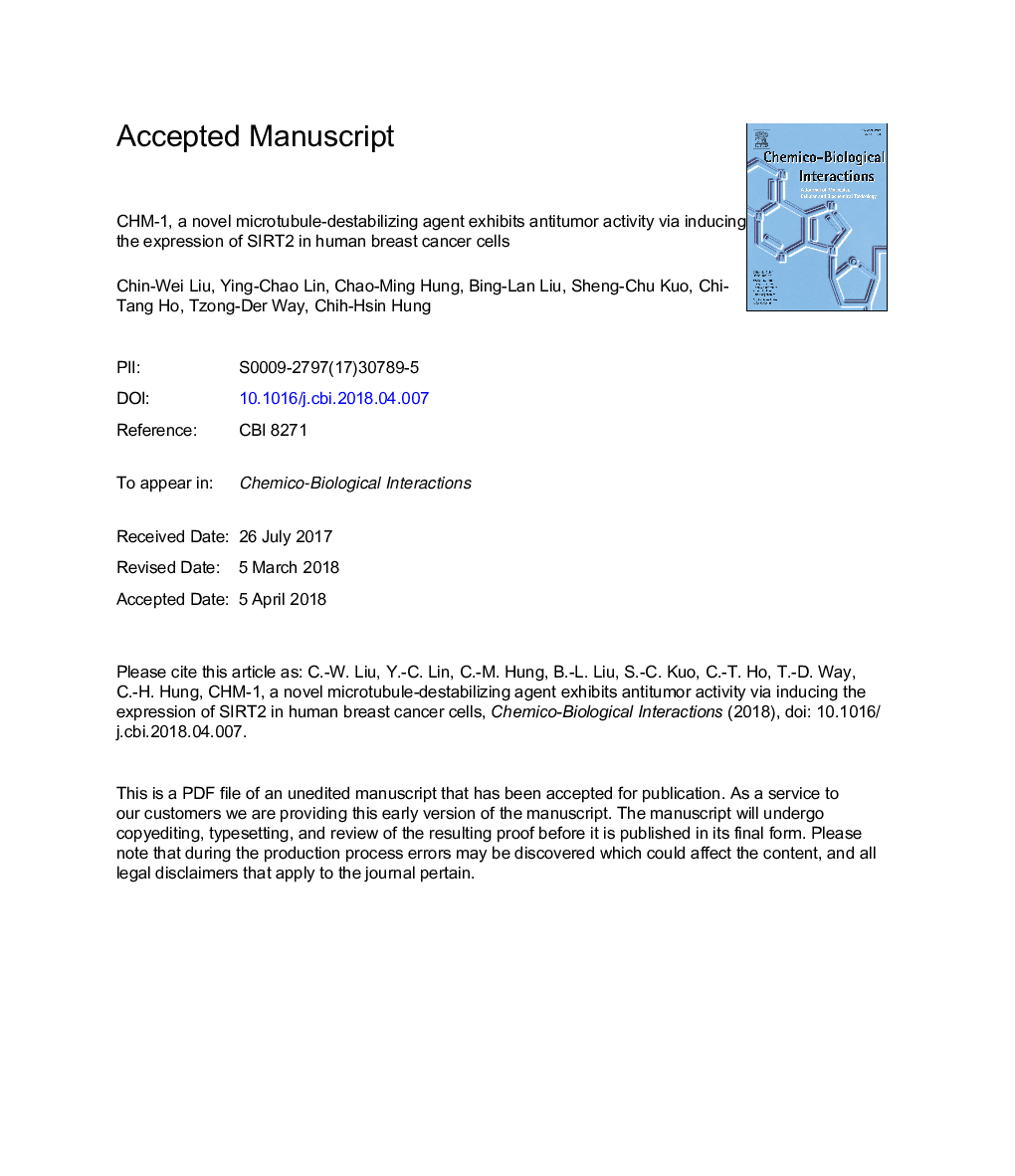| Article ID | Journal | Published Year | Pages | File Type |
|---|---|---|---|---|
| 8544740 | Chemico-Biological Interactions | 2018 | 51 Pages |
Abstract
Breast cancer is a major public health problem throughout the world. In this report, we investigated whether CHM-1, a novel synthetic antimitotic agent could be developed into a potent antitumor agent for treating human breast cancer. CHM-1 induced growth inhibition in MDA-MB-231, MDA-MB-453 and MCF-7â¯cells in a concentration-dependent manner. Importantly, CHM-1 is less toxic to normal breast (HBL-100) cells. CHM-1 interacted with tubulin, markedly inhibited tubulin polymerization, and disrupted microtubule organization. Proteins from control and CHM-1-treated animal tumor specimens were analyzed by two-dimensional electrophoresis and MALDI-TOF mass spectrometry. Our results indicated that CHM-1 increased the expression of SIRT2 protein, an NAD-dependent tubulin deacetylase. A prodrug strategy was also investigated to address the problem of low aqueous solubility and low bioavailability of the antitumor agent CHM-1. The water-soluble prodrug of CHM-1 (CHM-1-P) was synthesized. After oral and intravenous administration, CHM-1-P induced a dose-dependent inhibition of tumor growth. The aforementioned excellent anti-tumor activity profiles of CHM-1 and its prodrug CHM-1-P, suggests that CHM-1-P deserves to further develop as a clinical trial candidate for treating human breast carcinoma.
Related Topics
Life Sciences
Environmental Science
Health, Toxicology and Mutagenesis
Authors
Chin-Wei Liu, Ying-Chao Lin, Chao-Ming Hung, Bing-Lan Liu, Sheng-Chu Kuo, Chi-Tang Ho, Tzong-Der Way, Chih-Hsin Hung,
